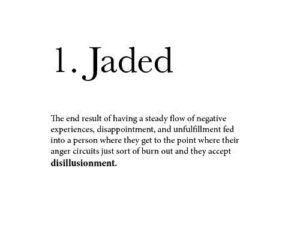
The blue marble.
There are moments in time when our world seems unhinged.
It’s as if our little marble slipped off its axis and a cascade of garbage just keeps flowing at us.
The violence in the Middle East, the depressing quagmire in Ukraine and the sudden lack of empathy for that ally is stunning.
Here at home, the House of Representatives— the so-called ‘People’s House’–goes rudderless for weeks and emerges with a new Speaker nobody ever heard of who is now two heartbeats from the presidency.
We are days from another budget crisis, an ex-president faces 91 felony counts and yet another high flying entrepreneurial “genius” turns out to be a fraud.
Rising interest rates have made already unaffordable homes and cars even more unaffordable and while the experts are telling us inflation is slowing it sure doesn’t feel that way when you visit the grocery store.
Yes, these are heavy, heavy times.
So, it’s hard to get riled up by the usual local shenanigans.
We are knee-deep in yet another Delray election cycle and a crowded field of contenders are jockeying for advantage.
I’ve been preaching the importance of this stuff for a long time now. Local government matters. Community matters.
Yet, the usual subjects of debate seem small these days compared to the existential challenges we see every day in the news.
Yet another mass shooting.
In idyllic Maine no less; a place where the slogan is “how life should be.”
Its discordant to see the picture of the latest monster with an AR-15 entering a local bowling alley in small town America hankering to slaughter some poor people in the wrong place at the wrong time.
But we’re numb to this news, aren’t we? Sure, it’s heinous and nauseating. It makes us quake with anger, but we are no longer surprised. And we know nothing is going to happen. We won’t even try to figure it out.
And a few days later in Ybor City, just a few hours up the road, 18 more people get shot and two more people die and nobody even talks about it. And then a child is shot to death in a shooting in Cincinnati. The murder victim was 11, five other children were shot in an incident that is sure to fade in a day or two.
Anger and pain. Mourning and sadness. Thoughts and prayers.
Rinse and repeat.
So yes, local politics has a hard time breaking through the fire hose of atrocities and challenges.
Did you ever stop to think what we argue about around here?
Whether a building can be three or four stories?
Whether we will allow people to volunteer and raise funds for a local arts center?
Whether we can afford to restore a golf course?
To be sure, there are things to worry about it, and wrestle with.
Here are a few:
How are we going to house our workforce? Where will teachers, police officers, retail workers, restaurant staff, nurses and young families live? And please don’t tell me Boynton Beach or that you don’t care.
How will seniors be able to age in a place where insurance costs are soaring, and staples are super expensive?
What’s going on in our schools?
Are we creating jobs? Is our economy sustainable or are we becoming a rich seasonal enclave that is a bad storm away from being yesterday’s news?
So yes, local politics means a lot. Local government matters. And the people who seek to serve us matter as well.
Last week, as I drove to work my phone rang ceaselessly with the latest political rumors. I let them all go to voicemail.
And a single thought entered my mind.
Where’s the vision? Where are the big, animating, and ideally unifying ideas that we can tackle together as a community.
We used to have an abundance of big rocks we were trying to move. We worked on race relations, we innovated on housing policy, we saved our police and fire departments when we were bleeding cops and firefighters to other jurisdictions, we were all over education, pushing for programs and fighting for better facilities. We led the region in ideas and ambition. We became a beacon for the region and beyond for good planning. We experimented with different ways to communicate with our stakeholders. We strived to involve our residents and business owners. We led with arts and culture.
We dared to dream.
And we got things done.
We didn’t major in the minor.
We didn’t play small ball.
Maybe we can’t fix the Middle East, or break the moronic, corrosive and nauseating partisanship that threatens the greatest nation the world has ever seen, and we certainly can’t stop a dictatorial despot who wakes up one day and decides to take a nation. But we can try and support candidates who look at this mess and say enough is enough.
And yes, there’s plenty we can do—especially right here at home.
Local government can lead the way in ways large and small. It can be entrepreneurial and visionary, it can bring people together and it can change lives; one city at a time across the land.
I’ve seen it.
And if you are looking for some optimism, I have a little for you. (If you’ve read this far, you deserve it).
Our City Commission has done a lot better lately.
The additions of Angela Burns and Rob Long have made a difference in tone and in the culture. People are happier, there’s seems to be some stability at City Hall, investors in the city are bullish that they can get a fair shake— if they play by the rules. That’s no small thing. People matter.
Angela Burns seems to be everywhere with a smile. She’s engaged in the community. She shows up. She listens. She cares. That’s a huge part of the job. That’s what leaders do.
Rob Long is cut from the same cloth.
Tone matters.
The next step, in my opinion, is to create a space and invite ideas. Put the vision back in Delray. Encourage civic engagement. Not just the usual suspects, go out and invite people in. Ask them to care. And reward their caring with positive action.
So, my friends we have a choice in the next five months.
We can argue over personalities, or we can press those who seek to lead us to think differently. To think, period.
It’s long past time that we did so. We may not feel better about the world’s problems, but we may find we have some ability to move forward right here at home.
Wonderful Lives Remembered
We lost Rebecca Jennings last week.
She was a nice woman and a contributor to Delray Beach.
Rebecca ran for Mayor in 2000, the same year I ran for City Commission. Although she lost to David Schmidt, who became an exceptional mayor, Becky ran a good campaign.
When you travel the campaign circuit, if you are lucky, you develop a rapport with your fellow candidates.
David and Rebecca and the third candidate in the race Gene Herring kept it civil. I became friendly with my opponent Ken Rubin, who later became a neighbor. I nominated Ken for some city boards and task forces, and he did a great job.
You get to know people on the trail and back in those days we had over 20 candidate forums in neighborhoods across the city. Yes, we each wanted to win, and everyone fought hard to do so, but it was a good experience. Our campaign was issue oriented and candidates talked about ideas and solutions.
I considered Becky Jennings a friend. We shared an endorsement from our fire union and prior to running, Becky helped me with an education newspaper I published. When I was in Leadership Delray, Becky was our program leader. We were a rowdy bunch, but she kept us in check because she had a sense of humor and a wonderful laugh. You can a long way with a sense of humor.
She will be missed.
I was remiss for not mentioning another wonderful person who recently passed.
Joan Weir was an amazing woman. She did a lot for our community.
Mrs. Weir was an admired educator, teaching 2nd grade at Plumosa Elementary School for years where she touched the lives of so many.
She was a pilot, threw legendary Halloween parties and was deeply involved in all things Delray.
She was a Boy and Girl Scout leader and taught Sunday school at St. Paul’s. She was a past president and founding member of the Delray Historical Society, a founding member of the Morikami Museum and chaired Delray’s 75th Diamond Jubilee Celebration. She was involved in Pineapple Grove’s Main Street application (which led to the revival of that neighborhood) and was a member of the legendary Jubileers.
The list goes on and on.
What a life! And she always had a kind word. Thank you, Mrs. Weir.








